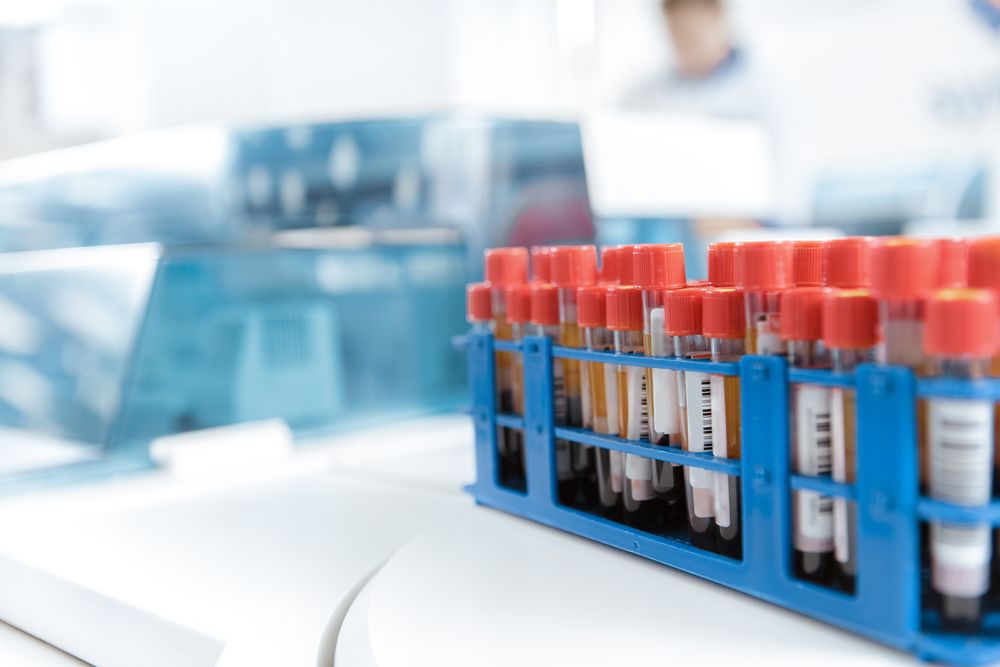Heart tests: Types, uses, and when to contact a doctor

Maintaining a healthy heart is essential for overall well-being and longevity.Regular checkups and screenings can help identify potential cardiovascular issues and assess your risk factors for heart disease. If you're wondering when you should have a heart health test package , this article will provide you with comprehensive information to make informed decisions about your cardiovascular health.
Understanding Heart Health Checkups
During a heart health checkup, your doctor will assess your
cardiovascular system, which includes your heart and blood
vessels. They will evaluate your overall health, look for signs of
heart disease, and determine your risk factors for developing
heart disease in the future. Risk factors may include high blood
pressure, high cholesterol, high blood sugar, overweight or
obesity, smoking, and alcohol use.
The American Heart Association (AHA) recommends certain heart
health screening tests that should begin as early as age 20. These
tests include blood pressure and cholesterol tests, blood glucose
tests, and body mass index (BMI) measurements. However, some
screenings may start later in life based on your individual health
history and risk factors.
It's essential to inform your doctor immediately if you experience
any symptoms of heart disease, such as chest pain or discomfort,
fluttering in your chest, shortness of breath, dizziness, fatigue,
or swelling in your feet or abdomen.
Types of Heart Health Tests
Routine heart health screenings are an integral part of preventive healthcare for adults. In addition to the recommended screenings, your doctor may order additional tests based on your specific circumstances and risk factors. Here are some common heart health tests:
- Electrocardiography (ECG, EKG): This test records your heart's electrical activity using small, sticky electrodes placed on your chest. It provides information about your heart rate and rhythm.
- Exercise Cardiac Stress Test: During this test, electrodes are attached to your chest to monitor your heart's electrical activity while you walk, run on a treadmill, or pedal on a stationary bike. It helps assess your heart's response to physical stress.
- Echocardiography:This test uses an ultrasound machine to create moving images of your heart. It helps evaluate the pumping function of your heart and assess your heart valves.
- Nuclear Stress Test: A small amount of radioactive dye is injected into your bloodstream, and images are taken to evaluate blood flow through your heart at rest and after exercise.
- Cardiac CT Scan for Calcium Scoring: This scan uses a CT scanner to create images of your heart and check for plaque buildup in your coronary arteries.
- Coronary CT Angiography (CTA): Similar to the previous test, this scan creates images of your heart based on CT scan images. A contrast dye is injected to visualize plaque buildup in your coronary arteries.
- Coronary Catheter Angiography:This test involves inserting a small tube (catheter) into your groin or arm and threading it to your heart. Contrast dye is injected to visualize your coronary arteries and check for narrowing or blockage.
These tests help assess your heart's function and detect any signs of heart disease. If you receive a heart disease diagnosis, your doctor will recommend appropriate treatments and lifestyle changes.
Heart Health Screening Guidelines
The American Heart Association provides guidelines for heart health screenings based on age, risk factors, and family history. Here are some general recommendations:
- Weight and BMI:Assess your weight and BMI during regular annual checkups.
- Blood Pressure Tests:Have your blood pressure checked at least once every 2 years, starting at age 20.
- Blood Cholesterol Tests: Get your blood cholesterol levels checked at least once every 4 to 6 years, starting at age 20.
- Blood Glucose Tests:Undergo blood glucose tests at least once every 3 years, typically starting at age 40 to 45.
However, some individuals may require earlier or more frequent screenings based on their risk factors. If you have high blood pressure, high cholesterol, high blood sugar, a heart condition, a family history of heart disease, or lifestyle factors like smoking or obesity, your doctor may recommend earlier or more frequent screenings. It's essential to consult with your doctor to determine the appropriate screening schedule based on your medical history and individual needs.
Monitoring Heart Health at Home
In addition to regular checkups, your doctor may encourage you to monitor your heart health at home. This self-monitoring can help track changes in your weight, blood pressure, blood sugar levels, and heart rate. Here are some methods for home monitoring:
- Weight and BMI:Use a scale to monitor your body weight and calculate your BMI.
- Blood Pressure Tests:Use a home blood pressure monitor to track your blood pressure regularly./li>
- Blood Sugar Levels: Monitor your blood sugar levels using a glucose monitor if recommended by your doctor.
- Heart Rate and Rhythm:Use a wearable fitness tracker, smartwatch, or other devices to monitor your heart rate and rhythm.
If your doctor wants to assess your heart's electrical activity over a prolonged period, they may ask you to wear a Holter monitor. This portable ECG machine records your heart's activity for 24 to 48 hours before returning the monitor to your doctor. Your doctor may also ask you to keep track of your fitness activities, diet, and other lifestyle factors that can impact heart health. Logging any symptoms of heart disease is also crucial for accurate diagnosis and treatment.
Maintaining Heart Health
Maintaining a healthy lifestyle is essential for reducing the risk of heart disease. Here are some tips for promoting heart health:
- Avoid Smoking:Quit smoking or avoid tobacco products altogether.
- Regular Exercise:Engage in at least 150 minutes of moderate-intensity exercise per week.
- Healthy Diet:Consume a variety of nutrient-rich foods, including fruits, vegetables, and whole grains. Limit your intake of trans fat, saturated fat, and sugar-sweetened foods and drinks.
- Weight Management:Take steps to manage your weight through a balanced diet and regular physical activity.
- Follow Treatment Plans: If you have been diagnosed with high blood pressure, high cholesterol, prediabetes, diabetes, or other health conditions, follow your doctor's recommended treatment plan.
Getting routine heart health screenings is crucial for maintaining optimal heart health. These screenings can help identify potential problems early and ensure timely intervention and treatment.
Conclusion
In conclusion, regular heart health checkups and screenings are vital for assessing your cardiovascular health and identifying potential risks for heart disease. Follow the recommended guidelines for screenings, and consult with your doctor to develop a personalized screening schedule based on your individual health history and risk factors. Additionally, with advancements in technology, services like Astolabs Lab offer convenient options for heart health tests that can be done in the comfort of your own home. By taking proactive steps to monitor and maintain your heart health, including utilizing home testing options like those provided by Astolab Lab, you can reduce the risk of heart disease and lead a healthier life.





